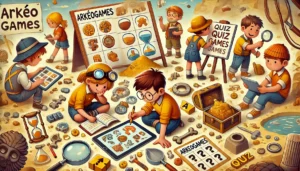Resources and content for your studies
Orientation and course information
 You are a junior, high school or university student looking to find your way through the jungle of careers and related studies. ArkeoTopia can be the compass to keep you from going crazy
You are a junior, high school or university student looking to find your way through the jungle of careers and related studies. ArkeoTopia can be the compass to keep you from going crazy
In order to guide you on your way, read our article ArkeoTopia – a guide for your studies and pick up information about different countries in our training section; here are the latest articles:
Our research programs
 If you are an adult and you wish to participate in one of our archaeological research programs or propose a publication, take note of our work below and contact us via our form:
If you are an adult and you wish to participate in one of our archaeological research programs or propose a publication, take note of our work below and contact us via our form:
Conferences, symposiums and meetings
 You wish to participate in symposiums or professional meetings, join the association in order to prepare for participation at events such as the annual meetings of the European Association of Archaeologists and other major professional meetings.
You wish to participate in symposiums or professional meetings, join the association in order to prepare for participation at events such as the annual meetings of the European Association of Archaeologists and other major professional meetings.
We also organize conferences, guided tours in the Île-de-France region and other services such as concerts and society game meetings. An opportunity to meet us and discuss your expectations as a future archaeologist. Discover our next actions in the agenda and the news of the association activities.
Resources for you
Discover our resources (book reviews, research news, interviews of research actors) on our social networks and on our website:
Take a look at our collaborators blog posts section, especially for their excavation experience, and don’t forget our critical bibliography for archaeology students.
In addition, by choosing to join the association, you will have access to our ArkaeoSources, a media library specialized in archaeology with books, articles, sound documents, videos and multimedia and websites.
Supporting and defending archaeology
 To support and defend scientific research in archaeology is to contribute to a better protection of our heritage, to a healthy and lasting relationship between the different actors of research (professionals, volunteers, citizens, politicians), and to improve knowledge and practices specific to archaeological research.
To support and defend scientific research in archaeology is to contribute to a better protection of our heritage, to a healthy and lasting relationship between the different actors of research (professionals, volunteers, citizens, politicians), and to improve knowledge and practices specific to archaeological research.
Find out about our latest actions and articles on the subject:
Working for ArkeoTopia
 We hire salaried workers for mediation in leisure activities, cultural and scientific activities (1) and sometimes for research. Do not hesitate to subscribe to our LinkedIn page to be kept informed.
We hire salaried workers for mediation in leisure activities, cultural and scientific activities (1) and sometimes for research. Do not hesitate to subscribe to our LinkedIn page to be kept informed.
You can also join ArkeoTopia as an active member of the association to start your activity as a young researcher in order to participate in research programs, publish general or specialized articles, train yourself in new scientific research tools, meet archaeologists and other research actors.
ArkeoTopia and you
 ArkeoTopia, another way for archaeology, has as vocation to take a different look at today’s archaeology to better help existing organizations prepare for tomorrow’s archaeology. This is why we attach fundamental importance to the orientation and training of young people and to accompanying them in their first steps as archaeologists.
ArkeoTopia, another way for archaeology, has as vocation to take a different look at today’s archaeology to better help existing organizations prepare for tomorrow’s archaeology. This is why we attach fundamental importance to the orientation and training of young people and to accompanying them in their first steps as archaeologists.
To find out more about ArkeoTopia, find the articles dedicated to it on the web, on paper, on the radio and on television by following our sections press and life of the association:
And to keep a souvenir of the association while supporting it, discover our goodies:
You wish to contact us, write to us via our form.
1. Cultural animation insists more on the transmission of knowledge, while scientific animation links knowledge, skills and behavior specific to the work of archaeologists. To go further, our article The development of educational rhythms, a learning time different from school in France – ![]()



